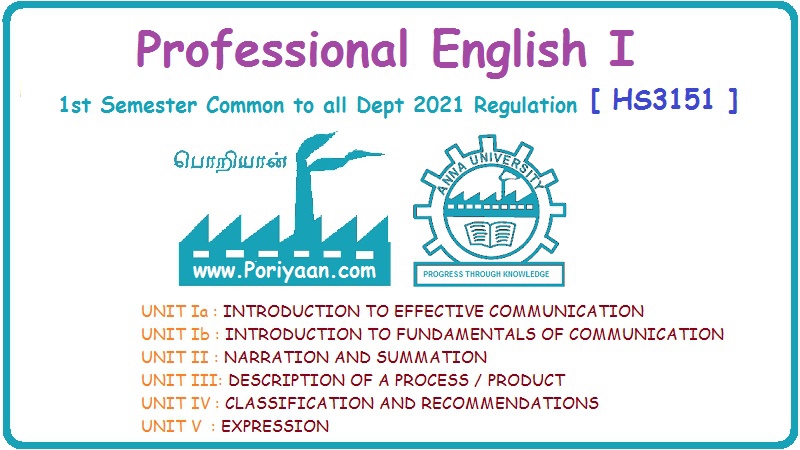Professional English I: Skill 6: Introduction to Effective Communication: Speaking
Speaking
Professional English
Language is a tool for communication. We communicate with others, to express our ideas, and to know others' ideas as well.
SKILL - 6 SPEAKING Language is a tool for communication. We communicate with others, to express our ideas, and to know others' ideas as well. Communication takes place, where there is speech. Without speech we cannot communicate with one another. The importance of speaking skills, hence is enormous for the learners of any language. Without speech, a language is reduced to a mere script. The use of language is an activity which takes place within the confines of our community. We use language in a variety of situations. People at their work places, i.e. researchers working either in a medical laboratory or in a language laboratory, are supposed to speak correctly and effectively in-order to communicate well with one another. Any gap in commutation results in misunderstandings and problems. For a smooth running of any system, the speakers of a language need to be especially and purposefully trained in the skill of speaking. In-order to become a well rounded communicator one needs to be proficient in each of the four language skills viz., listening , speaking, reading and writing, but the ability to speak skillfully, provides the speaker with several distinct advantages. The capacity to express one's thoughts, opinions and feelings, in the form of words put together in a meaningful way, provides the speaker with these advantages. The joy of sharing one's ideas with others is immense. When we speak to others we come to have a better understanding of our own selves, as Robert Frost once said: “I am a writer of books in retrospect, I talk in order to understand, I teach in order to learn.” Undoubtedly, the clarity in speech reflects clear thinking. An effective speaker can gain the attention of the audience and hold it till the completion of his message. Speaking skills are important for career success, but certainly not limited to one's professional aspirations. Speaking skills can also enhance one's personal life. While talking we have to utter the words correctly and clearly so that what we speak is understood by others. If the message does not reach the listener, then the communication is not effective. To make it so, oral practice in English can be undertaken either in the classroom or in the language laboratory by the students with the help of the teachers. In addition to proper pronunciation, certain formalities have to be followed while talking with seniors, elders and professionals. First of all, the conversation with them must begin with greeting according to the time of the day. A tone of politeness and respect must be kept all through the conversation.INTRODUCTION
Professional English I: Skill 6: Introduction to Effective Communication: Speaking : Tag: : Professional English - Speaking
Related Topics
Related Subjects
Professional English I
HS3151 1st semester | 2021 Regulation | 1st Semester Common to all Dept 2021 Regulation
